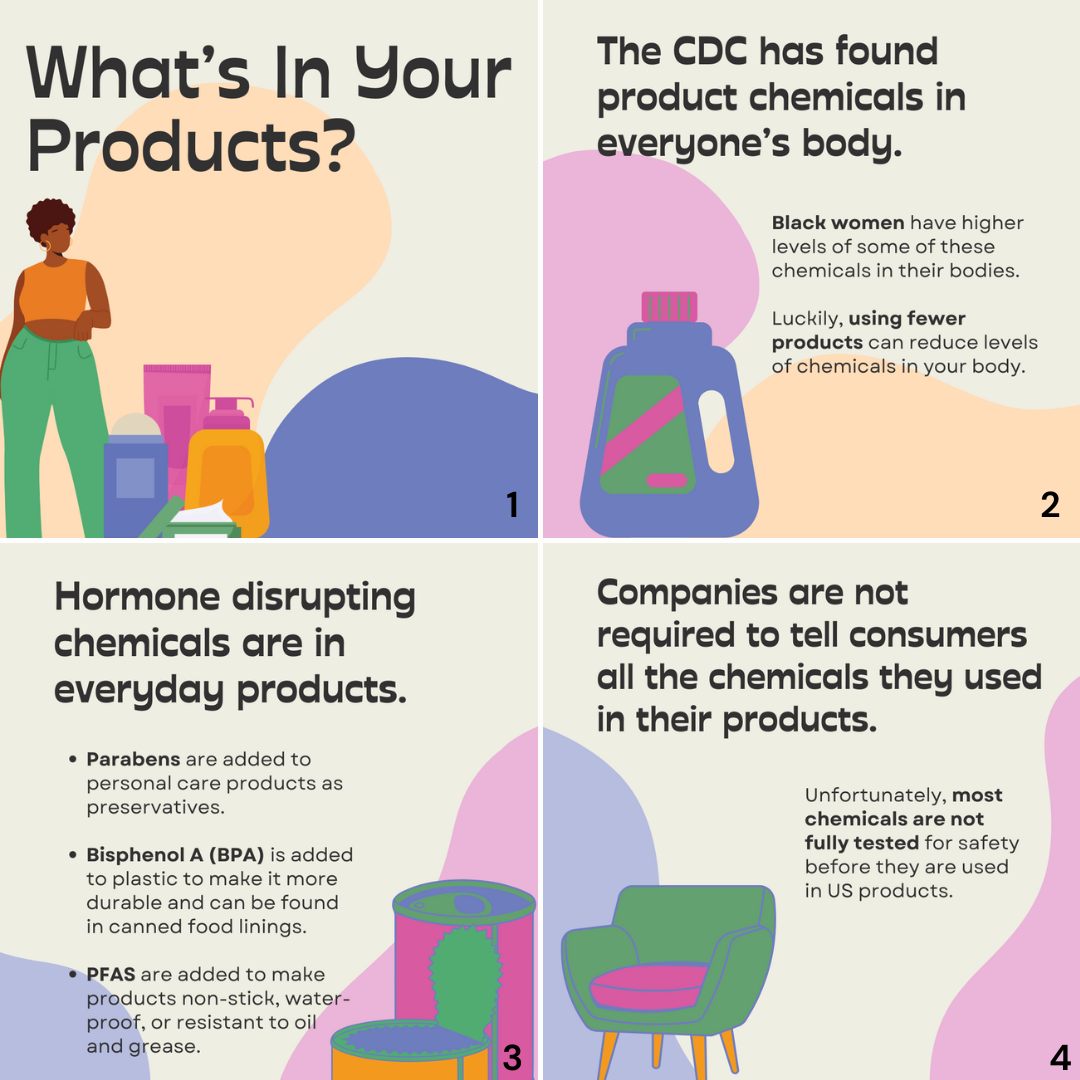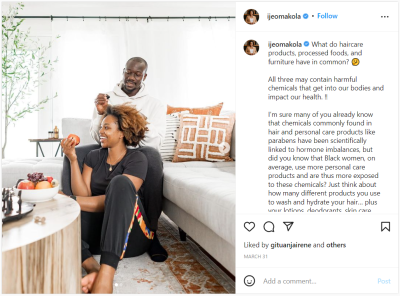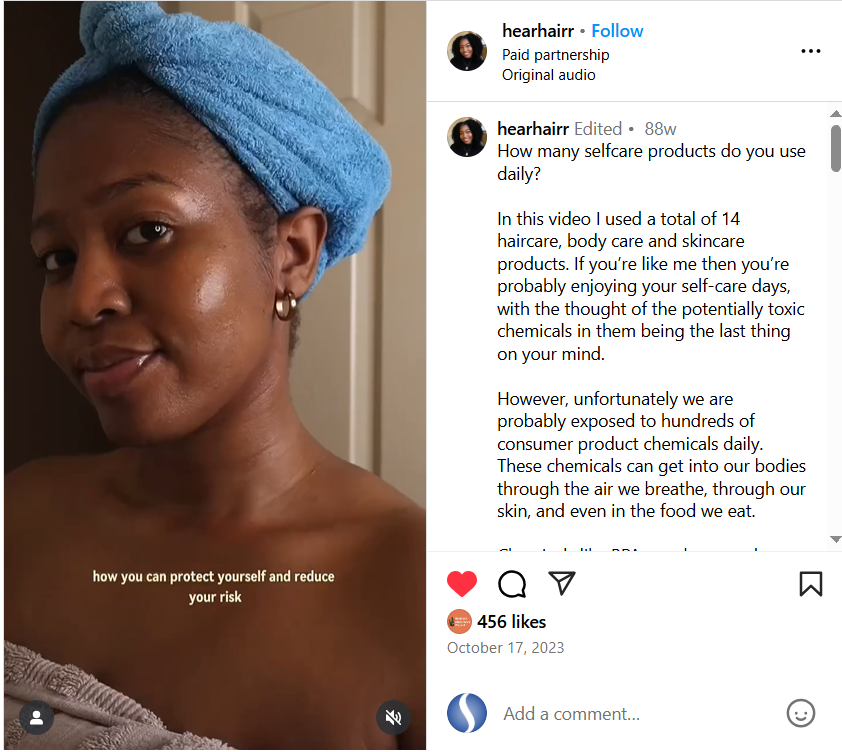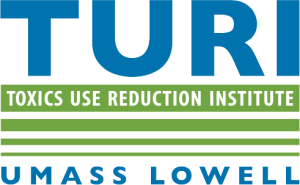The POWER Study
About the study

Black women are disproportionately exposed to many endocrine disrupting chemicals in products. These are chemicals, like phthalates and parabens, that interfere with the body’s hormones and have important impacts on health. Black women also suffer more from hormone-mediated health issues such as uterine fibroids, infertility, early puberty and more aggressive forms of breast and endometrial cancers.
Through the POWER Study, Silent Spring Institute and the Resilient Sisterhood Project are working to educate women about harmful chemicals that contribute to health disparities and encourage the use of safer alternatives. In the first year of the project, we conducted focus groups to understand how women make choices about the products they use. We learned that women often use social media as a resource for personal care product recommendations.
Campaign 1
Based on that information, we decided to engage with social media influencers to see if they could help Black women reduce their exposures. We recruited 10 social media influencers with a combined following of more than 780,000,and asked them to do the following:
- Attend an informational workshop on endocrine disrupting chemicals and environmental health
- Create one to two pieces of social media content on harmful chemicals in products and post on their social media platform
- Share an online survey with their audience
- Report analytics on their posts and share audience feedback
Results

The social media posts reached more than 114,000 followers. Nearly 10,000 followers liked the content and 1,700 followers shared it with their networks. Findings from the online surveys showed the following:
- 74% said the content increased their concern about how chemicals in products may affect their health.
- 83% said they had previously heard about chemicals in products affecting health
- 43% said they may start avoiding chemicals of health concern in the products that they purchase
This project demonstrated that using this novel dissemination approach, we were able to reach thousands of Black women to share information about consumer product chemical exposures and potential impacts on health, and distribute simple, effective steps for shifting to safer alternatives.
Campaign 2
To further assess whether engaging with social media influencers increases people’s knowledge of endocrine disrupting chemicals (EDCs) and motivates them to change their behaviors, we recruited seven Black women influencers. We targeted recruited micro-influencers (<100,000 followers) because they tend to have relatively high engagement.
After attending a 60-minute workshop about EDCs, we asked the influencers to craft compelling public health messaging about EDCs, using their own voice and branding, and then share their posts with their audiences on Instagram.
Using an established environmental health literacy questionnaire, we surveyed the influencers at baseline and one month after they shared their content. We also surveyed their audiences, before and after the posts were shared . The survey included questions about EDC exposures and regulations, awareness of common EDCs, and shopping behaviors.
Results

Results of the survey showed that both the influencers and their followers knew more about the chemicals at follow-up than at baseline and had a greater intention to take steps to reduce their exposures:
- The Instagram posts reached more than 16,000 accounts and elicited more than 28,000 engagements (e.g., views, likes, shares)
- After viewing the posts, 80% of respondents said they will now consider a product’s ingredients when shopping, up from just half prior to the posts being published.
- The number of respondents who said they would try to avoid specific chemicals like parabens, BPA, PFAS, and “fragrance” (which can include undisclosed EDCs) doubled.
The findings of campaign 2 demonstrate that engaging social media influencers is an effective strategy for increasing knowledge among Black women about EDCs in products that could harm their health and motivating people to change behaviors to avoid harmful ingredients. We are scaling up the project by engaging more influencers and on different platforms in order to reach larger audiences and improve Black women’s health.
Social media influencers
Campaign 1
- Dr. Ijeoma Kola (@ijeomakola)
- Beverly Coleman (@curlybeviie)
- Karina BL (@dr.karinab)
- Jo Williams (@jawms)
- Robyn Neal (@robynmneal)
- Kristen Nichole (@thepolecologistphd)
TikTok
Campaign 2
Partners

Funder


I really love this! I’m really critical about what I put in and put on my body but I still have so much to learn about the different chemicals that go into these everyday products...
— viewer comment